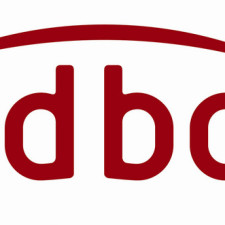A Quick Guide to Taxation Including Withholding and Reporting
Like it or not, tax is something that we all have to deal with. For most people, taxation is a rather simple affair, admittedly it’s something we may have cause to grumble about.
Just because it’s simple doesn’t mean you should make your tax contributions and forget all about it, because you could be paying too much.
Employers and withholding tax
As the UK Government operates a withholding tax system known as ‘Pay as You Earn (PAYE)’, employers are required to collect their employees’ tax through what is known as the withholding tax system. The aim of this system is to make the ‘End of Year Tax Return’ redundant, though due to the fact that some taxpayers have complicated tax affairs, such taxpayers must still file tax returns.
Tax reporting and investments
If you have investments from which you earn an income, even a small income, you must report this income so that tax can be paid upon it. Failure to report your income on such investments is known as tax evasion, and the penalties for this crime are often severe. Income from interest is the most common form of taxable income stemming from investments, and the main categories are:
- Interest from bonds, certificate of deposits (CDs), corporate bonds, demand deposit accounts and certain types of government agency securities
- Interest from savings, checking and other interest-bearing accounts
Some interest earned is fully taxable, while other forms of interest are partially taxable, the trick to making sense of your taxation obligations lies in knowing which forms of interest are fully taxable and which are partially taxable. This can get quite complicated, so you may need to confer with an experienced accountant, one well versed in taxation affairs. If however, you are going to invest with an eye to earning an income from your investments, you really should have an idea of the tax obligations linked to each form of investment so that you can make discerning decisions concerning your investment, and just as importantly, avoid hassles with the taxman.
Tax evasion in the UK: Don’t try it!
Lately there has been a lot of talk about offshore accounts and tax evasion in the UK. Although most of the tax evaders that the Government is going after are extremely wealthy individuals and corporations that are hiding their finances overseas, don’t for a minute think that the Government hasn’t got plans for those shirking their tax obligations domestically, even if they’re not remotely in the same ball park. There are several penalties for tax evasion in the UK:
- A sentence of up to five years
- A fine of up to 200% of tax due
- Loss of working permit (for foreign nationals)
Tax tools online
There are now many online tools, many of which are available for free, that can help us all make better sense of our taxation obligations. The UK tax calculator is one of many handy online tools that can be used to make sense of one’s taxation requirements. This handy tool can take into account income from several different sources, such as employment, self-employment, income from savings and investments and rental income, and can provide you with an estimate of your income tax and National Insurance contributions. Although the calculator is extremely accurate, it doesn’t however take into account child benefits, so if you have children, bear in mind that the calculator doesn’t include tax adjustment for the High Income Child Benefit Charge (HICBC), moreover bear in mind that what you’re presented with is an estimate and should be used as a guide only.






